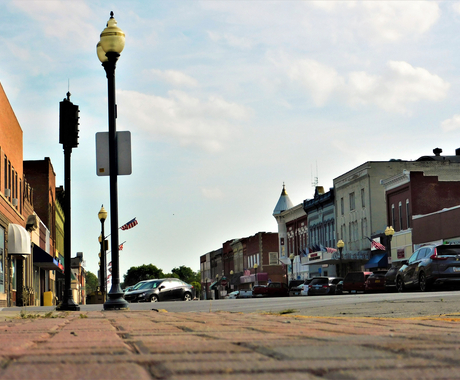Rhea Landholm, brand marketing and communications manager, [email protected], 402.687.2100 ext 1025
Lyons, Neb. - Nebraska lawmakers skipped debate on three property tax reform bills on Monday, ensuring this session will come to a close without reaching a comprehensive solution to one of the state’s biggest challenges. The move signifies lawmakers’ inability to compromise, said Jordan Rasmussen, Center for Rural Affairs policy associate.
Over the weekend, the three bills under consideration were discussed in closed negotiating sessions with senators summoned by Speaker Jim Scheer. The group included Sens. Tom Briese, Steve Erdman, Curt Friesen, Mike Groene, Burke Harr, and Jim Smith. They ended the weekend without reaching agreement.
This failure to compromise was underscored on Monday, as the legislature passed over the three separate proposals scheduled for debate, Rasmussen said.
“It is disheartening to rural and urban Nebraskans alike that despite efforts to outline a responsible property tax relief package, senators will once again adjourn without addressing one of the most significant challenges facing our state,” Rasmussen said.
The Center for Rural Affairs supported LB 1084, which would have modestly increased state revenues to restore funding for education and property tax relief. LB 1084 did not advance out of committee, so parts were added as amendments to LB 1103, a bill which would have provided a minimum amount of state aid for each school district.
“As outlined in LB 1103/1084, rural Nebraskans recognize that real property tax relief is not possible without revenue to to pay for education,” Rasmussen said. “Property tax relief is only part of the equation.”
LB 947, introduced by Sen. Smith on behalf of Gov. Pete Ricketts, would have reduced the top corporate income tax rate and create a refundable income tax credit for residential and agricultural land owners.
“Senators are correct in recognizing the shortcomings of LB 947 and its inability to provide real property tax relief,” Rasmussen said. “Combined with unfunded income tax credits and lost revenues from corporate income tax cuts, the governor’s tax plan would have cost the state nearly $600 million when fully implemented and placed added strain on already tight budgets.”
Each of the three property tax reform bills has faced a filibuster, and lawmakers have been unable to guarantee that obstacle can be overcome. Only three days remain in the 2018 session.
“With LB 947, rural Nebraska would inevitably be left to shoulder a revenue loss of that magnitude, all while the state continues to skirt its obligation to provide funding for K-12 education,” said Rasmussen. “The Center for Rural Affairs remains committed to helping bring property tax relief to Nebraska.”


